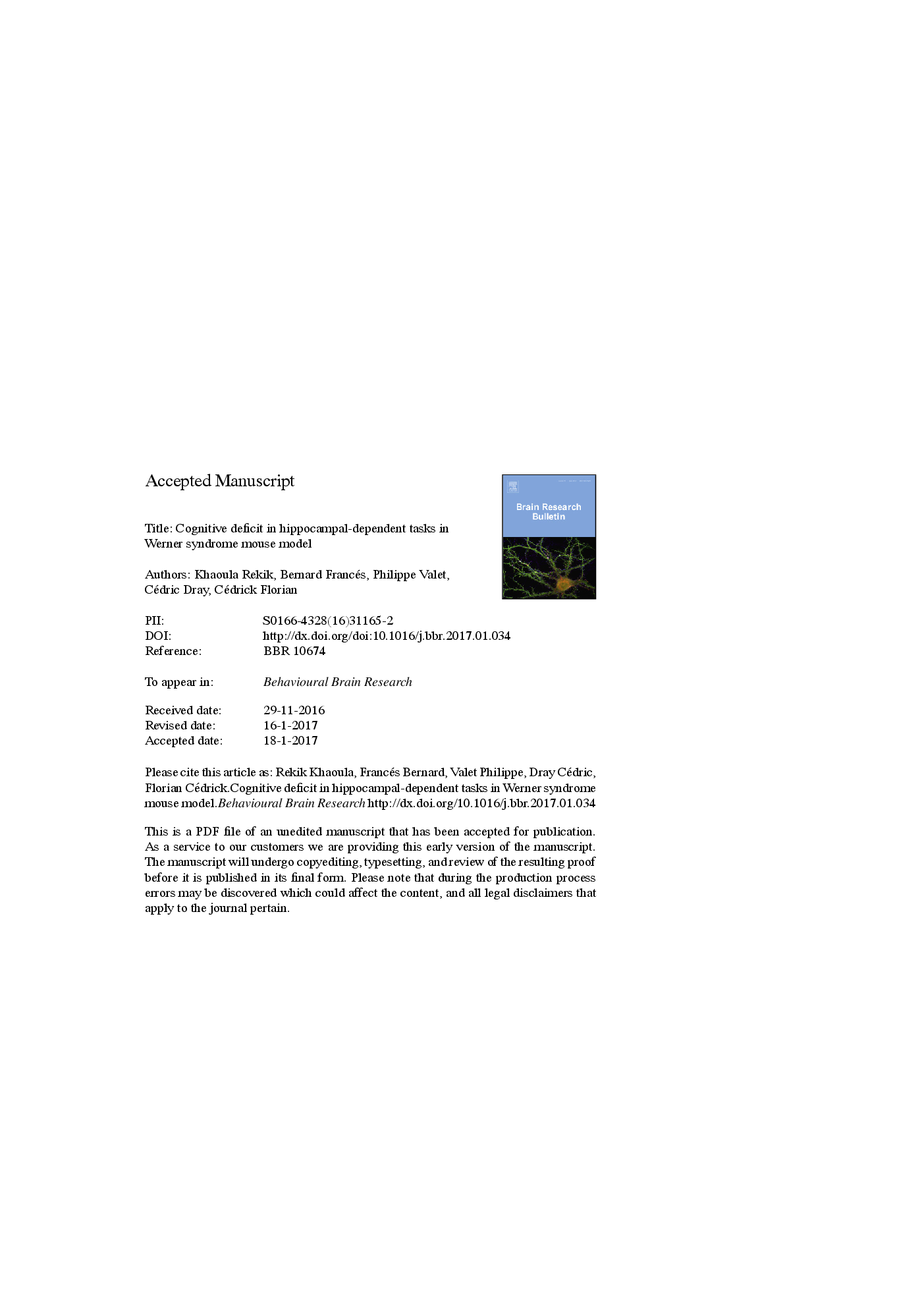ترجمه فارسی عنوان مقاله
کمبود شناختی در وظایف وابسته به هیپوکامپ در مدل موش سندرم ورنر
عنوان انگلیسی
Cognitive deficit in hippocampal-dependent tasks in Werner syndrome mouse model
| کد مقاله | سال انتشار | تعداد صفحات مقاله انگلیسی |
|---|---|---|
| 128282 | 2017 | 27 صفحه PDF |
منبع

Publisher : Elsevier - Science Direct (الزویر - ساینس دایرکت)
Journal : Behavioural Brain Research, Volume 323, 14 April 2017, Pages 68-77
ترجمه کلمات کلیدی
سندرم ورنر، سالخورده، رفتار - اخلاق، حافظه، ماوس،
کلمات کلیدی انگلیسی
Werner syndrome; Aging; Behavior; Memory; Mouse;

